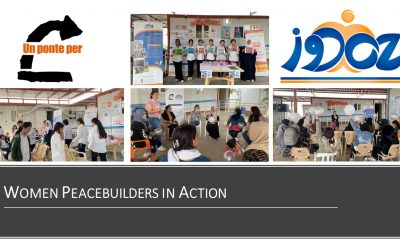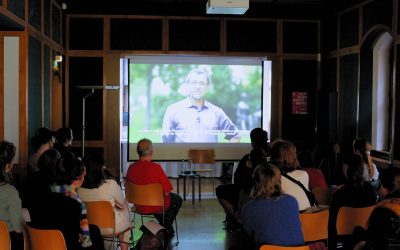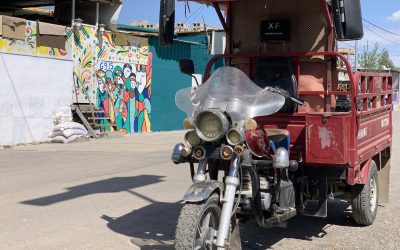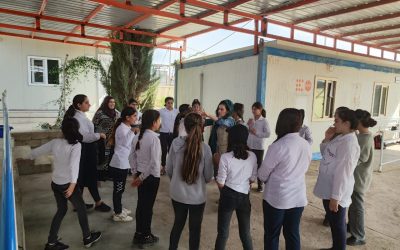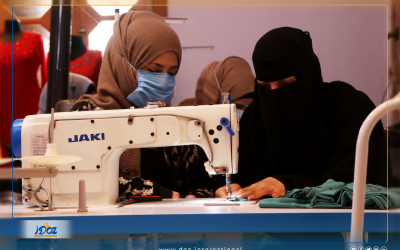Urgent Support For Livestock Owners and Farmers in Rural Hasaka
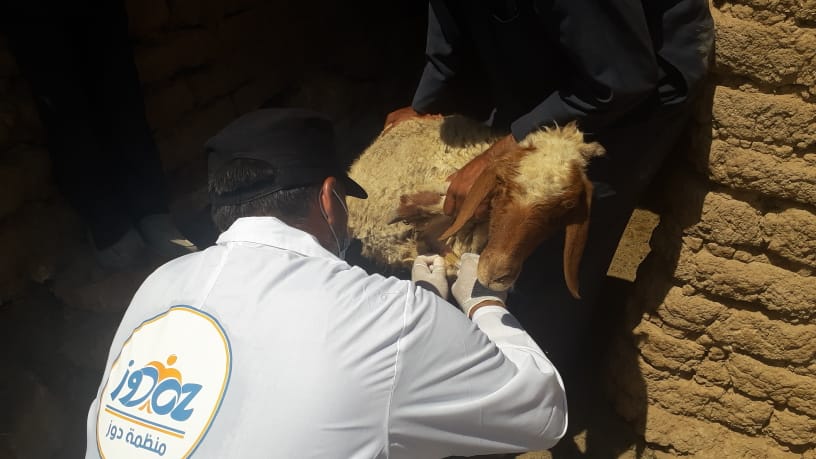
The project “Urgent Support For Livestock Owners and Farmers in Rural Hasaka” under program “SABIR II” was implemented in partnership with Expertise France with Financial Support from Ministry of Europe and Foreign Affairs of France.

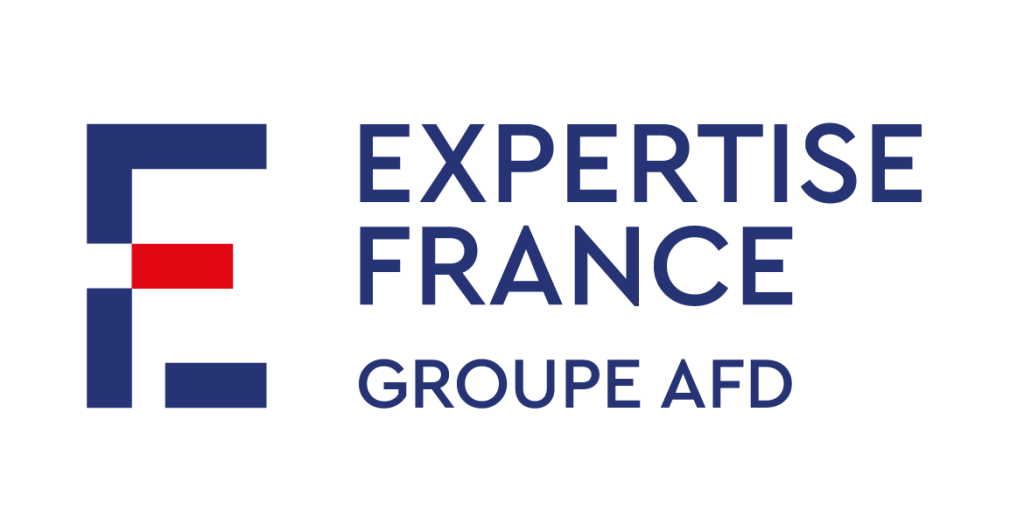

Project Summary
Livestock is considered an essential source of income generation in the governorate of Hasaka. However, since 2011, livestock production has decreased by at least 30% due to the lack of government subsidized fodder and vaccines, insecurity, disrupted access to domestic and foreign markets, and lack of sufficient government investment in economic rehabilitation in the northeast.
Based on a rapid assessment conducted by DOZ Syria in early May 2022 on the livestock sector in Markada subdistrict of Rural Hasaka, it was found that the dramatic spread of the disease Enterotoxemia (popularly known in Arabic as Al-Tasammum Al-Mi’awi or Al-Dumyah or Al-Hummah Al-Qula’iyah disease) and spread of internal parasites (popularity known in Arabic as Al-Tufayliyat) among livestock is a major threat to the overall livestock in the region.
Moreover, The Rapid Need Assessments showed that birth among livestock is decreased by 22% approx. in comparison to recent years. Out of 10 livestock, 2 or 3 of them have successfully given birth, while the rest failed due to malnutrition, lack of fodders, draught, weather change, and lack of pastures. In the targeted areas, each sheep needs at least 1.2kg-2kg fodder each day where a cow consumes 3kg-4kg approx. each day. There was a need to provide urgent support for fodders to livestock owners and help them gradually find sustainable and affordable solutions meanwhile. That information has been confirmed by the local statistic of Office for Livestock and Agriculture Wealth of Markada Subdistrict.
Enterotoxemia (popularly known in Arabic as Al-Tasammum Al-Mi’awi or Al-Dumyah or Al-Hummah Al-Qula’iyah disease), also known as overeating or pulpy kidney disease, is a condition caused by Clostridium perfringens type D. These bacteria are normally found in the soil and as part of the normal microflora in the gastrointestinal tract of healthy sheep and goats. Under specific conditions, these bacteria can rapidly reproduce in the animal’s intestine, producing large quantities of toxins. The epsilon toxin produced by C. perfringens Type D which is the most significant toxin in producing the disease. Young animals are most vulnerable and among the high mortality rates.
On the other hand, internal and external parasites spread among livestock – if not countered now – can lead to a very dangerous disease which is called Theileriosis. For example, when a cow, sheep, or goat gets this parasite, the body reacts by trying to destroy the parasite and because parasite is living inside the red blood cells, the body attacks its own infected red blood cells (hemolysis) to destroy the parasite. Unfortunately, this can lead to a huge loss in red blood cells, which are responsible for carrying the oxygen around the body, this results in death in two to three days.
Our Response
In this project, DOZ protected 2052 livestock approx. (cows, sheep, and goats) from common livestock diseases, provided urgent support such as vaccinations and fodders to selected livestock owners and farmers, increased livestock birth rate of 20 cows through artificial insemination, sterilized livestock 161 sheds/barns, helped creating sustainable fodder alternatives such as Azolla plants for 12 farmers/livestock owners, and increased the technical capacity of circa 161 livestock owners in target village/s of Sub-district of Markada in Rural Hasaka.
We provided urgent essential vaccinations such as Jovaclost vaccination for countering Enterotoxaemia, Ivermectin Injections to eliminate the internal, external, and lung parasites, that might cause Theileriosis. DOZ provided A-D3_C vitamin to improve livestock immunity and health. We provided livestock after getting vaccinated with Antipyretic injection to reduce temperature that is caused due to Jovaclost vaccination. In addition to provision of vaccinations and vitamins, our teams sterilized of 161 livestock sheds/barns with Alpha-Cypermethrin to combat the spread of these two diseases and external parasites at sheds. In addition to that, we conducted on-site veterinary regular training/awareness sessions on how specific essential topics for local communities such as: livestock birth, common disease among livestock in that area, essential vaccinations and vitamins, livestock hygiene care, and sustainable methods on livestock nutrition such as Azolla as an alternative Furthermore, we provided fodder and mineral salts for 2052 livestock (cows, sheep, goats). The project in brief has helped in covering the huge gap in fodder provision and fodder availability in the region.
DOZ followed the measures to prevent COVID-19 during the implementation of the activities of the project to prevent the spread of the virus among employees and beneficiaries.
Activities Implemented Under This Project
Activity 1.1.1 Provide 161 Beneficiaries with Capacity Building Sessions
Five veterinarians assigned by DOZ for the project have provided consultations on five distinct subjects to 161 beneficiaries (common diseases – types of vaccines and vitamins and their importance – livestock care during pregnancy and childbirth – fodder and alternative feed types and their impact on livestock nutrition – sterilization of barns and health care for livestock).
The beneficiaries were divided into groups, and each group consisted of 10 to 15. These sessions were administered by veterinarians and involved interaction between participants and veterinarians, as the sessions included numerous conversations between the beneficiaries and the veterinarians, and the veterinarians responded to all questions and concerns raised by the participants.
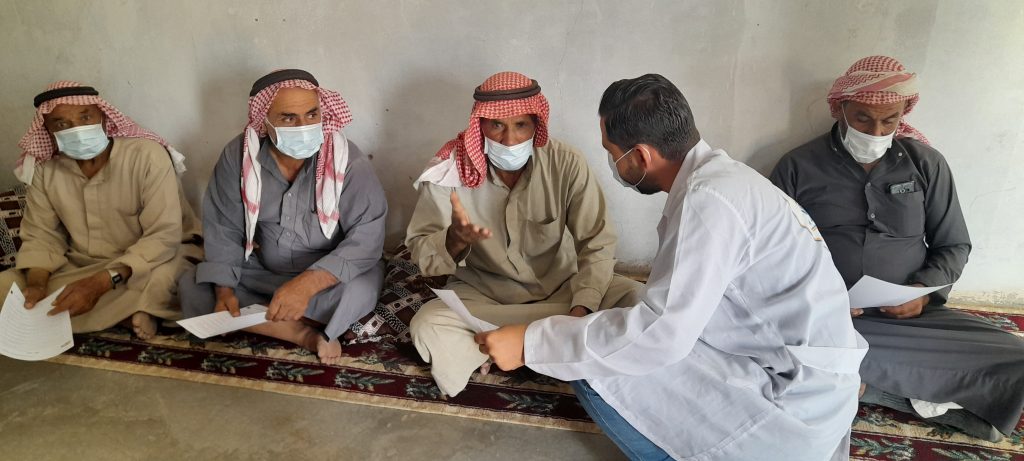



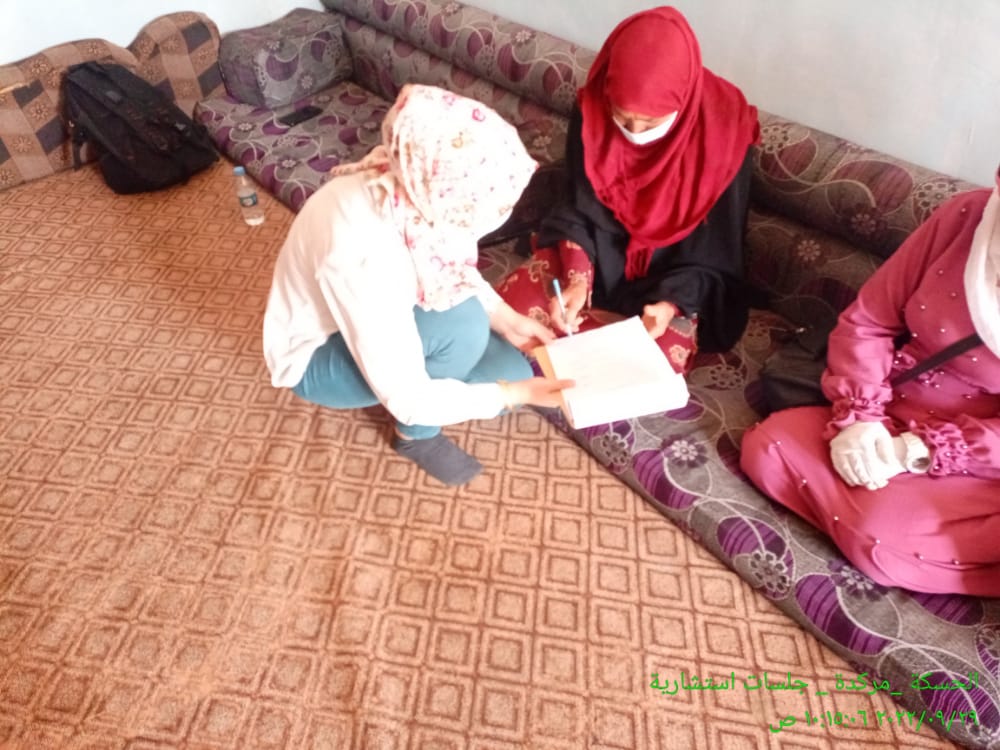
Activity 1.1.2 Provide Jovaclost Vaccination and Ivermartin Injection in the Field
After receiving approval for the implementation of the project from the HAO and preparing the final lists, local committees were coordinated with, and the distributed cards were given to the beneficiaries 48 hours prior to the activity. The activity was then implemented using a door-to-door approach, all the targeted livestock were vaccinated, and there was on-site consultation, and the beneficiary was given instructions by veterinarians.
Jovaclost Vaccination Rounds:
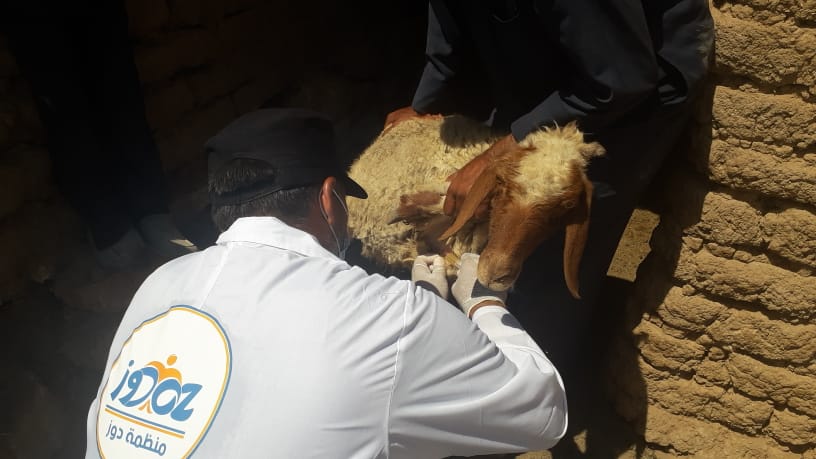
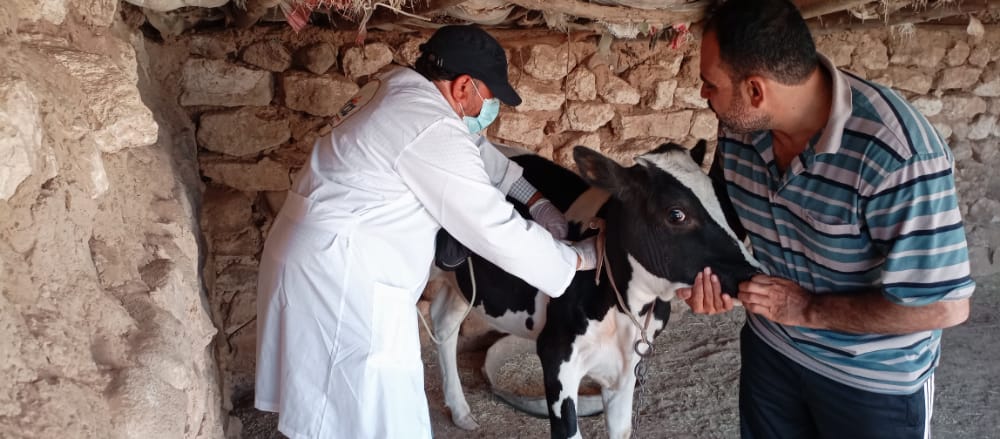
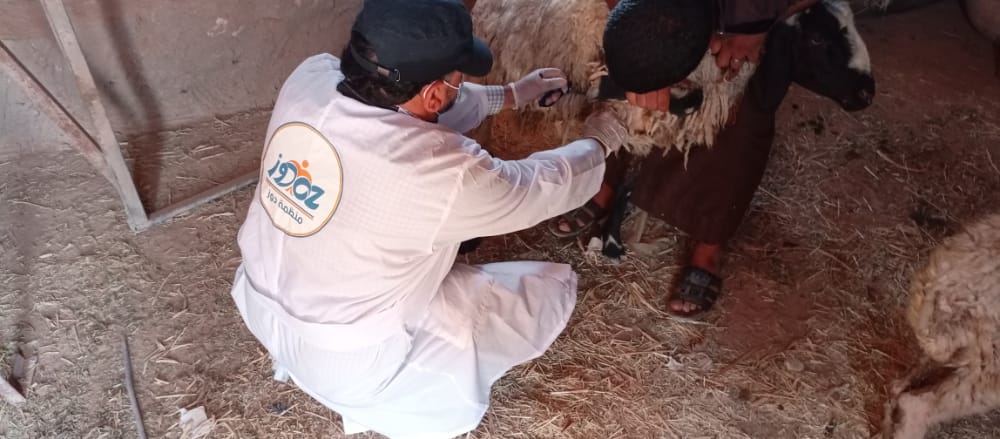
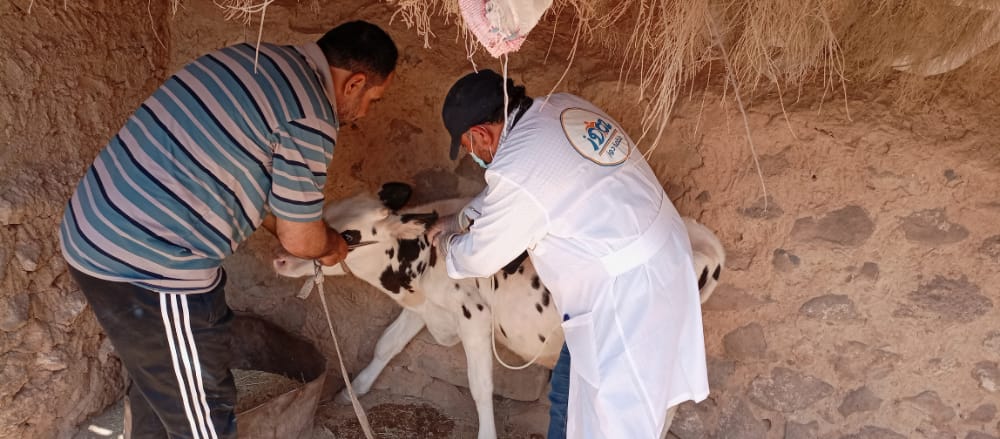
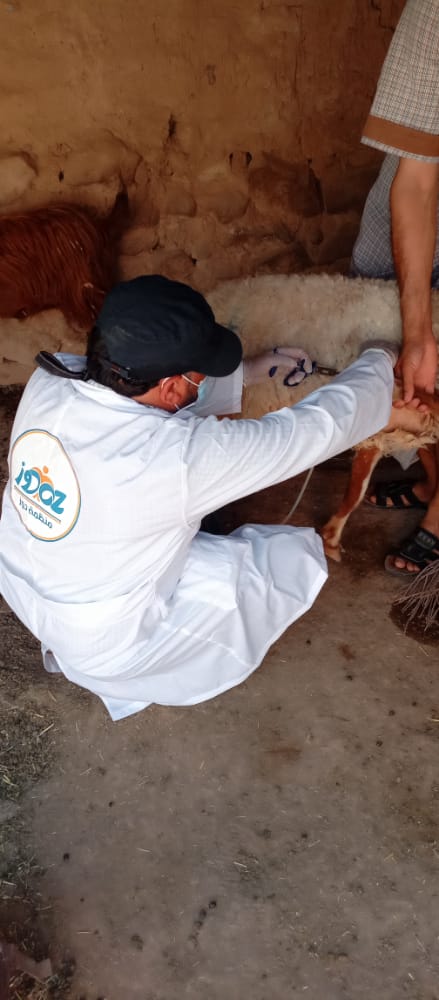
Ivermatrin Vaccination Rounds:
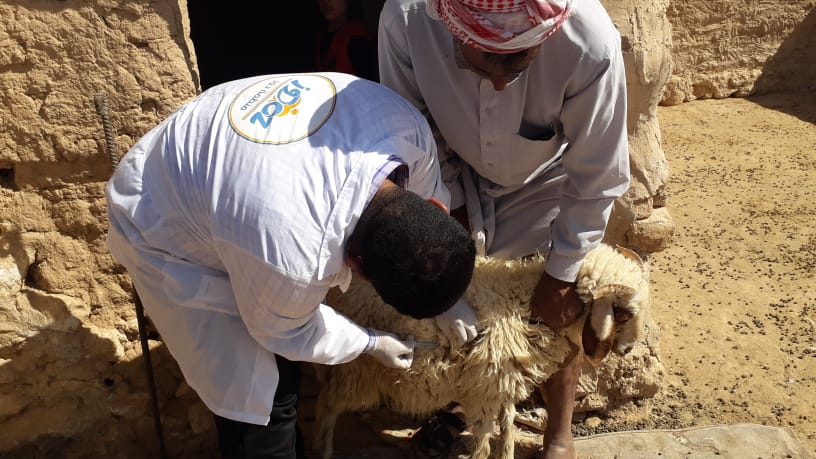

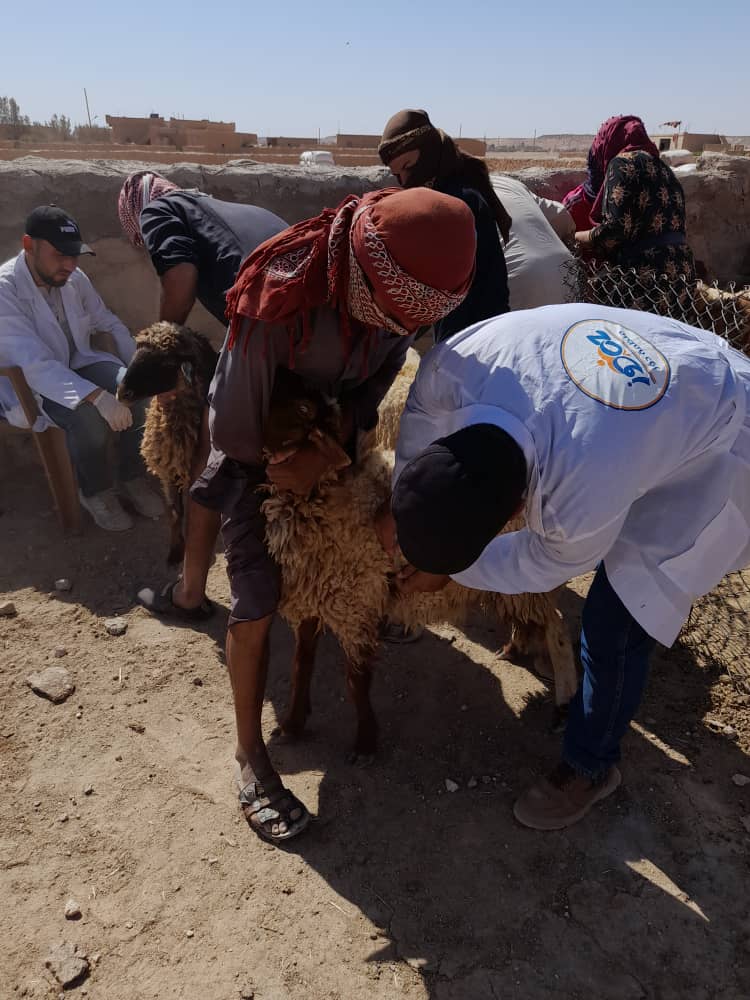
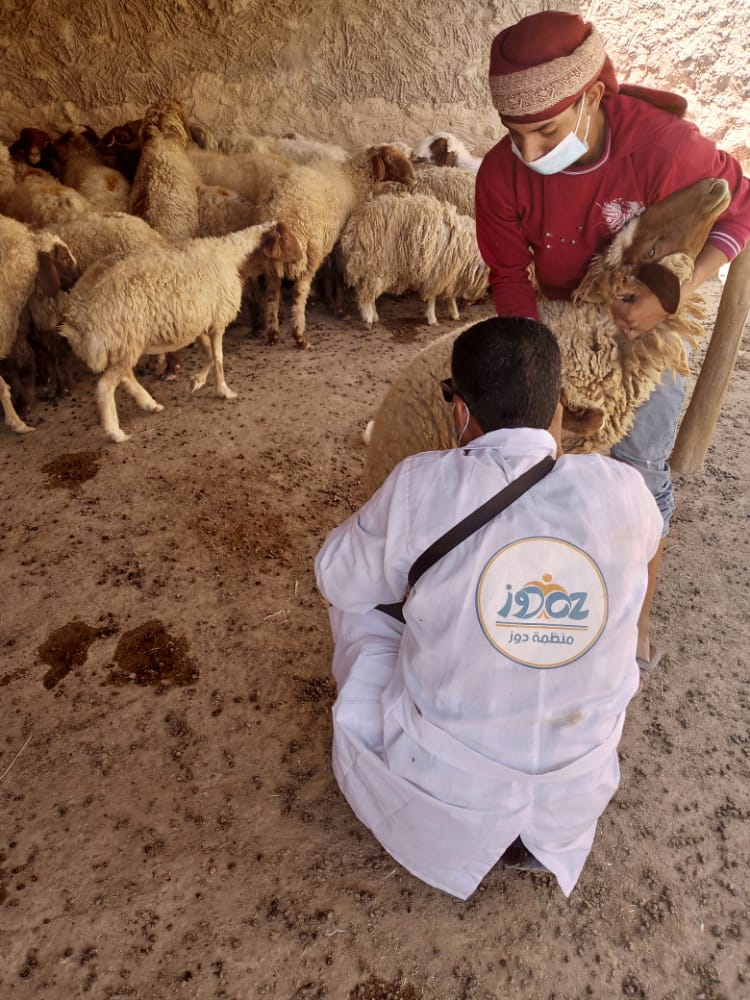

Activity 1.1.3 Provide Antipyretic and Conduct Vitamins Distribution Rounds
The beneficiaries were informed forty-eight hours before the activity, and the activity was then carried out using a door-to-door approach. The team provided the beneficiaries with the antipyretics and vitamins, and the project team distributed the materials to the beneficiaries with an explanation by the veterinarians on how to use the antipyretics and vitamins.
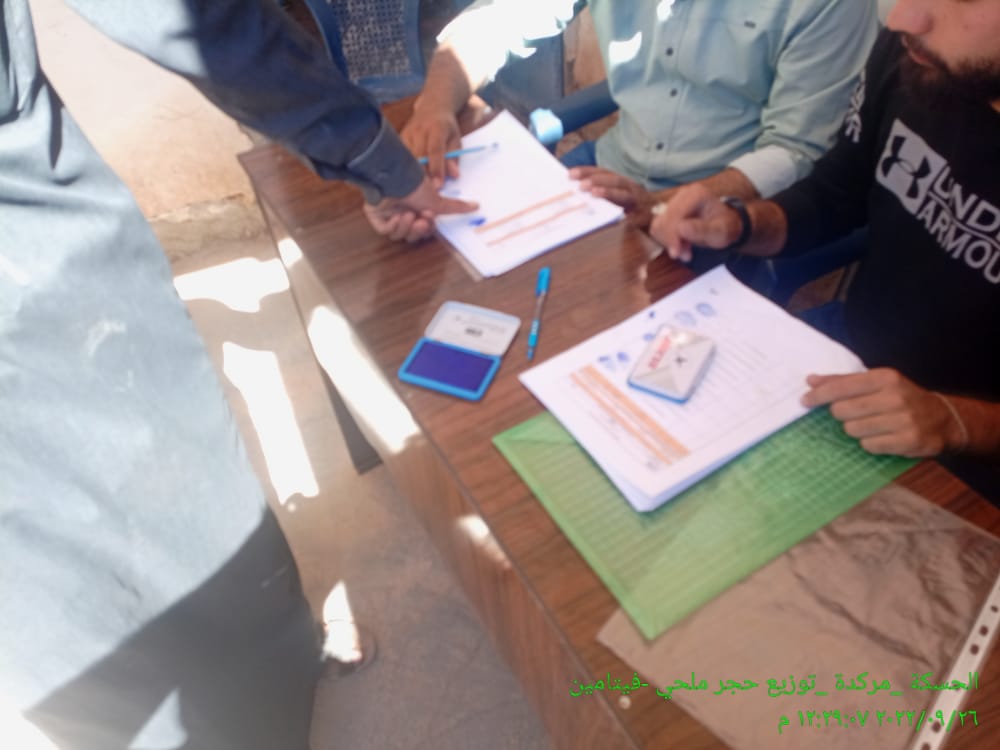


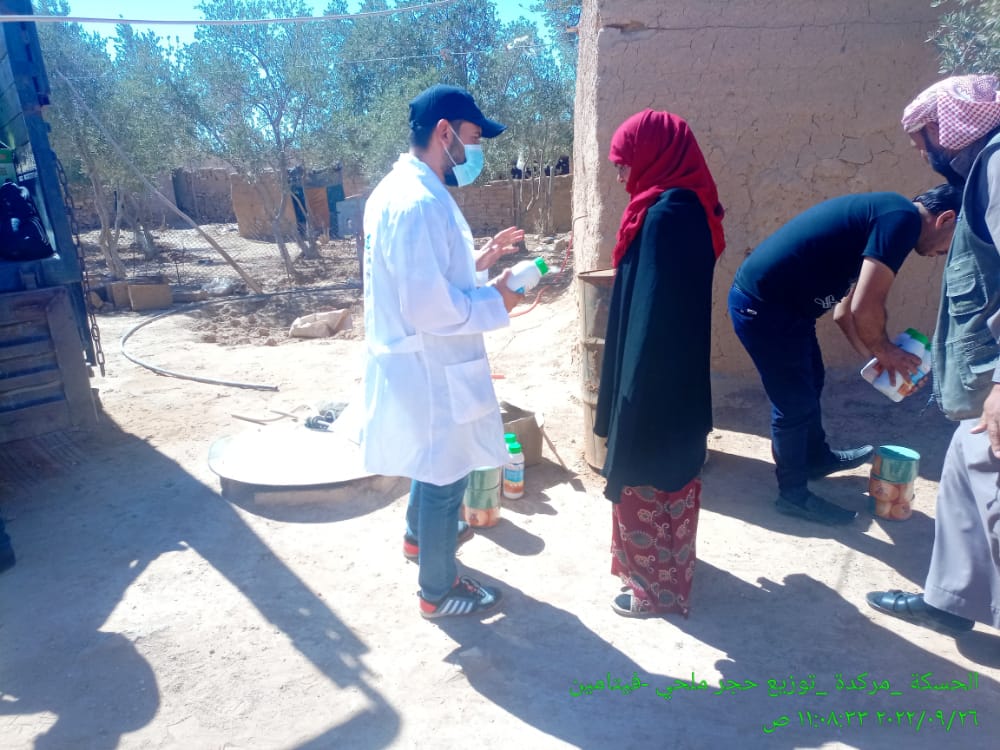

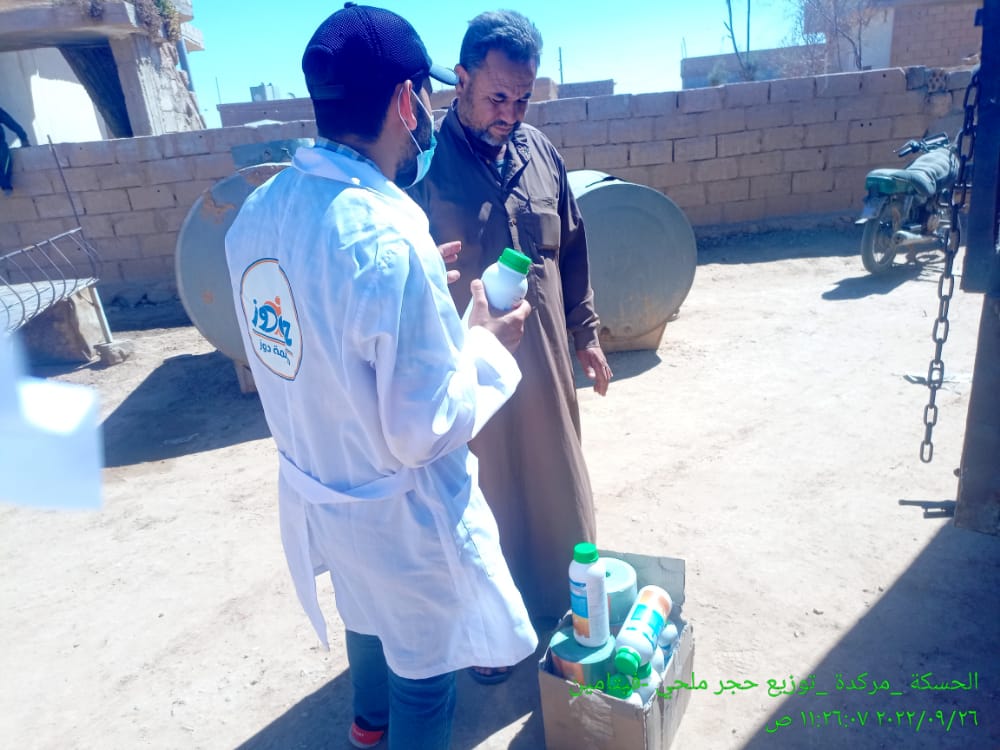
Activity 1.1.4 Provide Training on Azolla Plant and Azola Seeds Distribution
Selected In this activity, there were 12 people selected to receive Azolla seeds, and after receiving training from an expert in this field, the training was followed by the distribution of Azolla seeds to the participants under the supervision of the expert, who also provided the participants with instructions and advice. With trips to various locations.
A total of twelve (12) beneficiaries were chosen to take part in this activity. First, they were instructed by an expert in this field, who also supervised the distribution of azolla seeds to the beneficiaries under the supervision of the expert. Finally, the beneficiaries were given instructions and advice regarding how to cultivate the azolla. With trips to various locations.

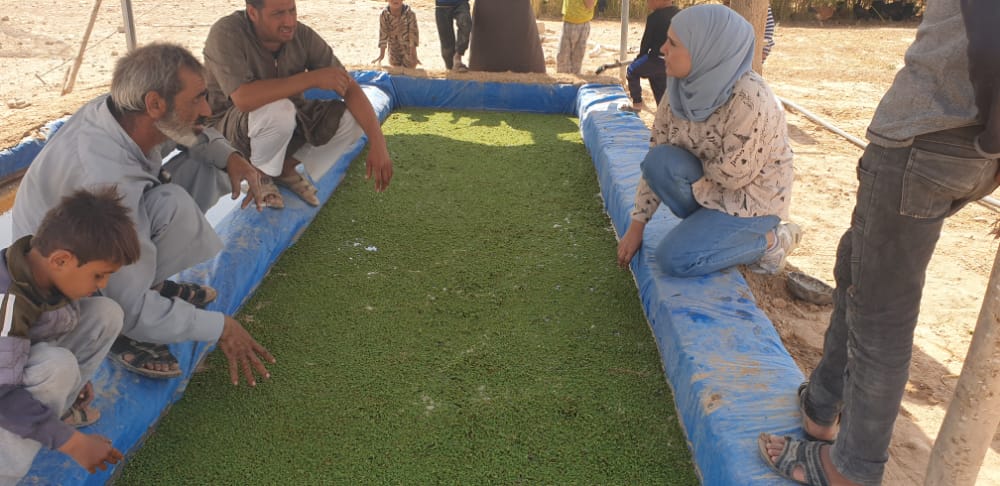
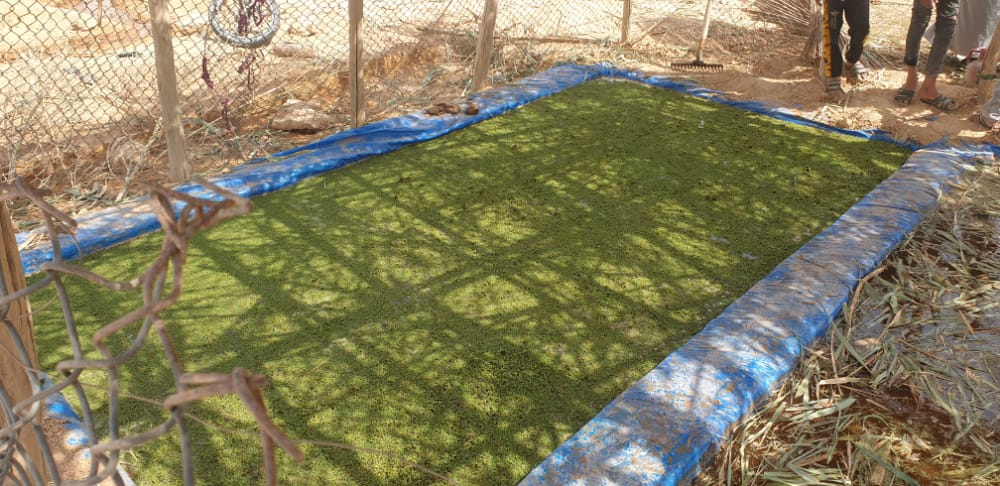
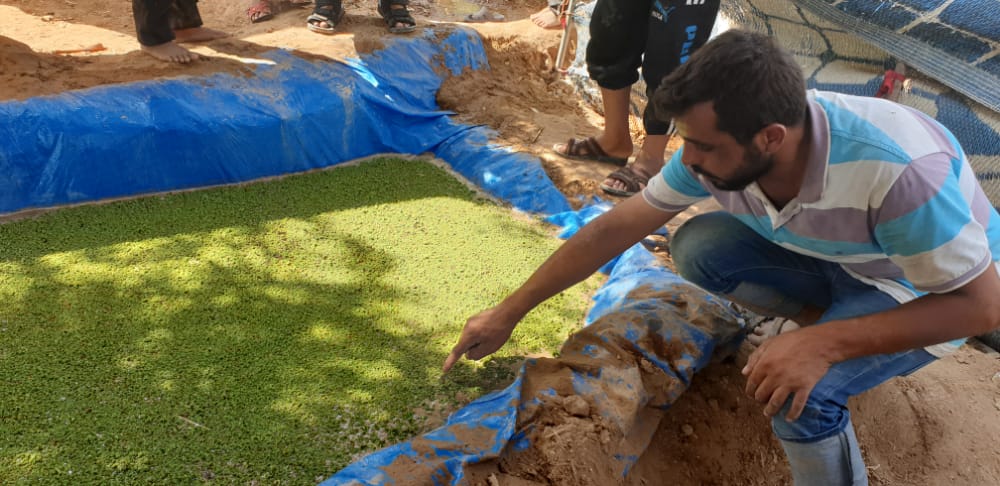
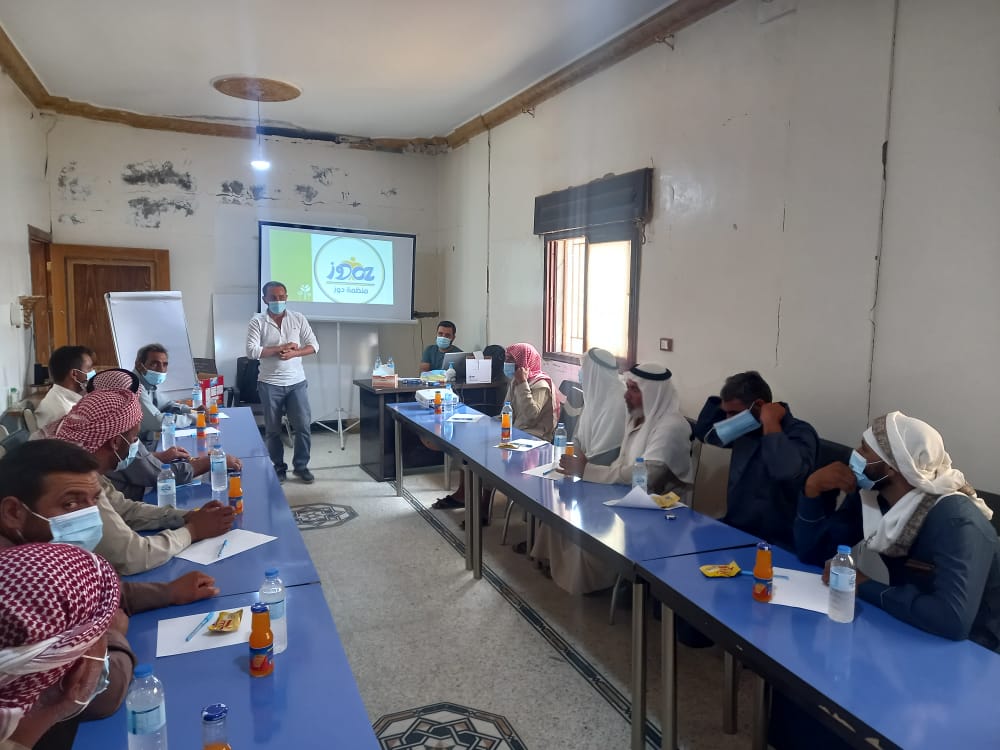
Activity 1.1.5 Sterilize the Barns (Sheds) of Livestock
Before beginning the process of sterilizing the barns by emptying them, coordination was made with the community committees and beneficiaries were informed. DOZ workers sterilized the barns, and veterinarians provided instructions and advice to livestock breeders during the sterilization process. Furthermore, the livestock breeders were trained in how to sterilize the barns.
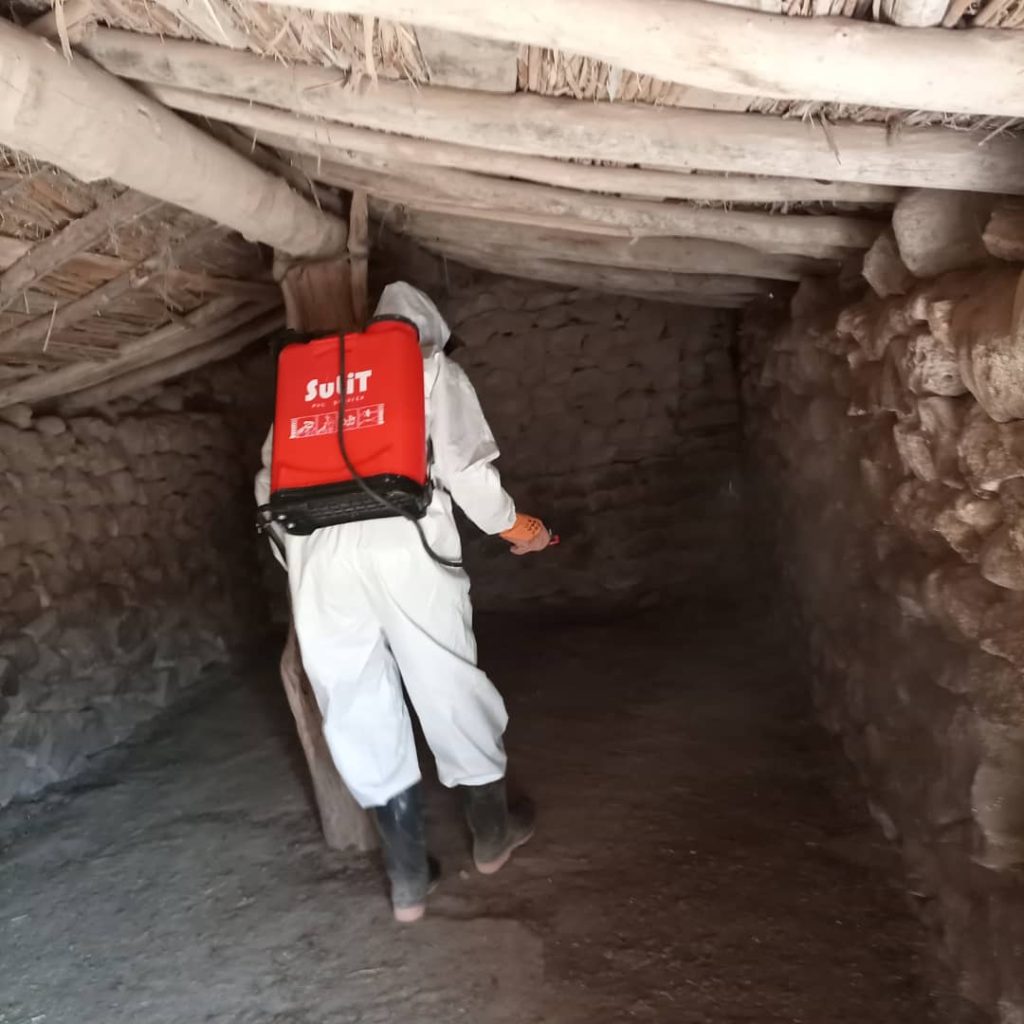
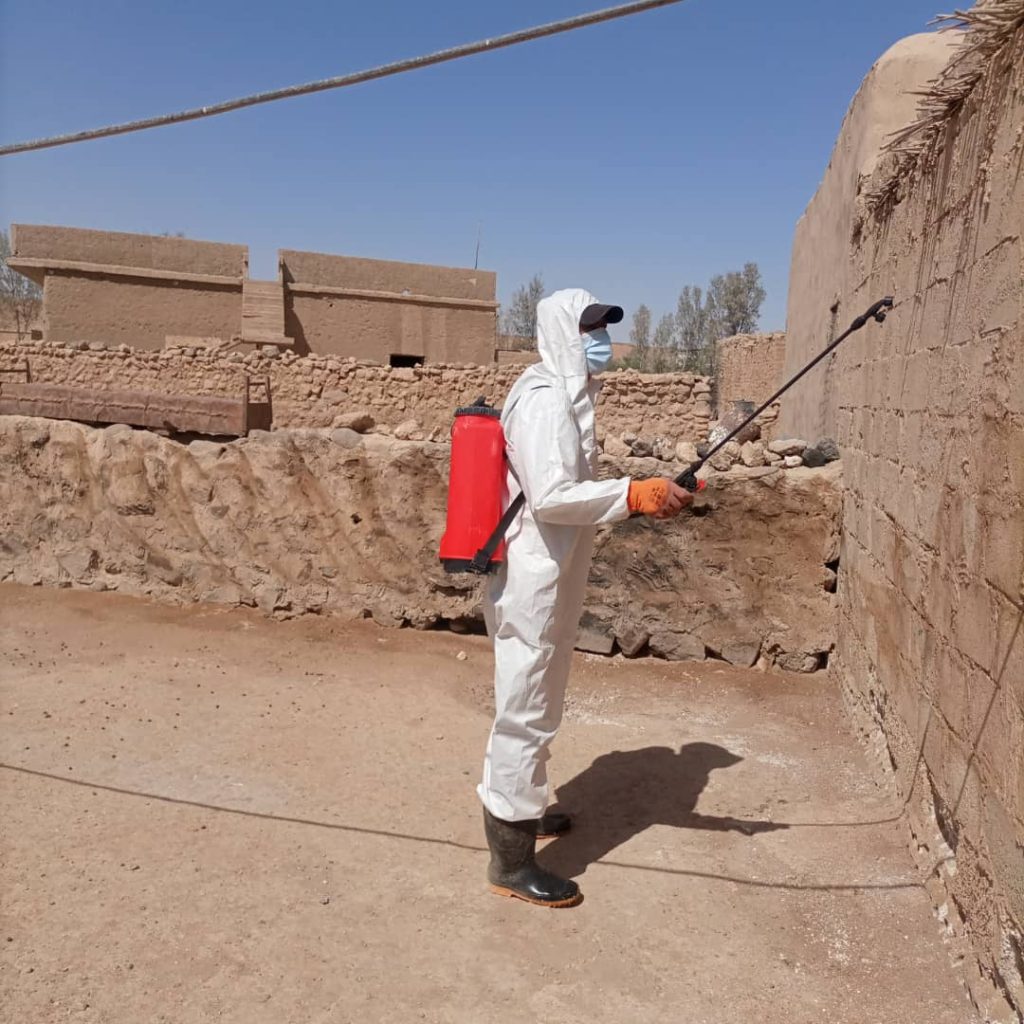
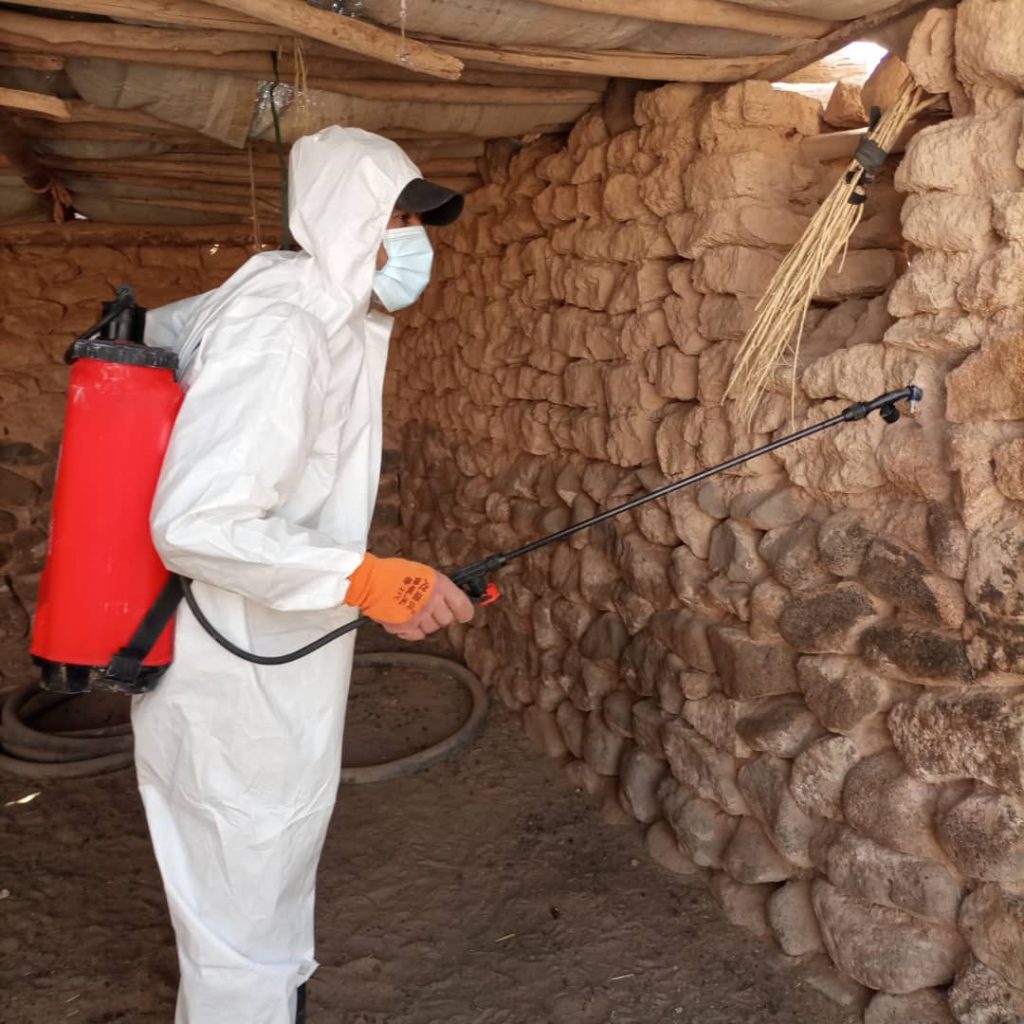
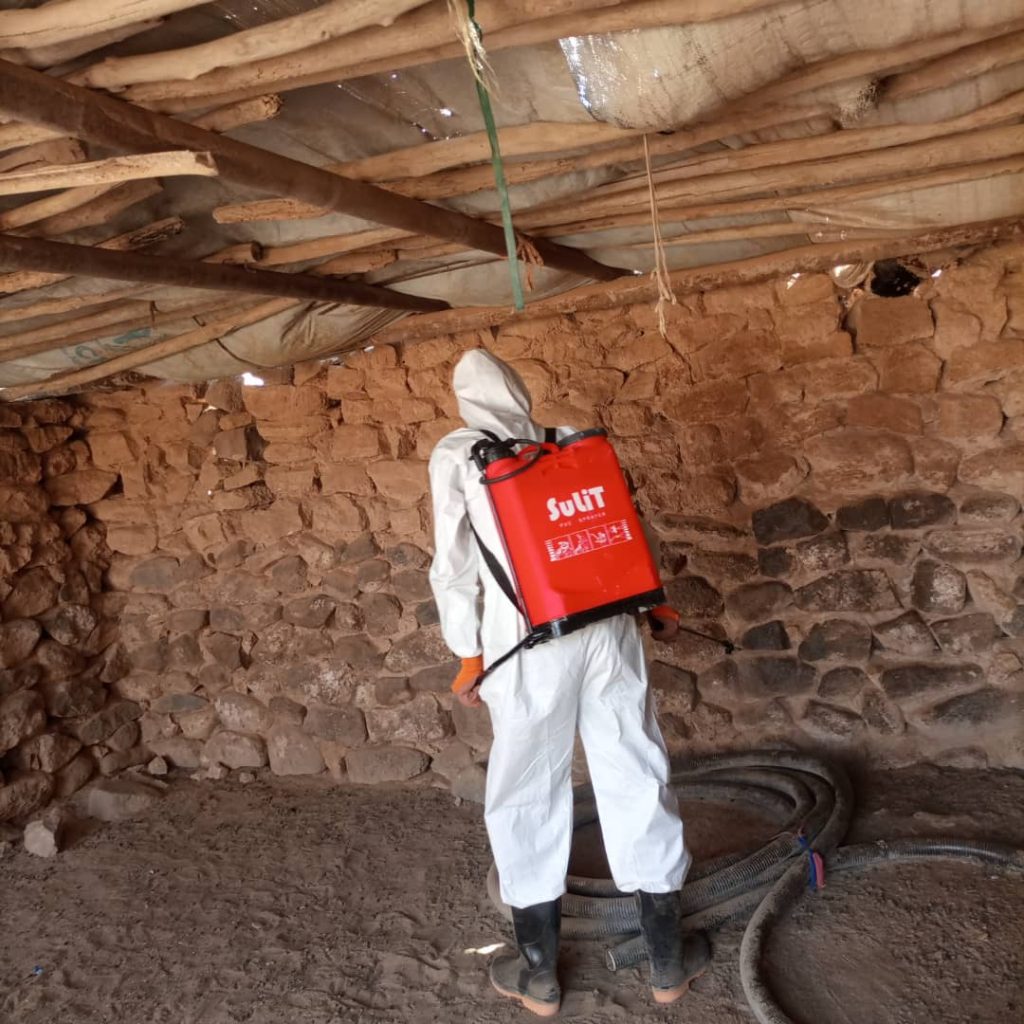
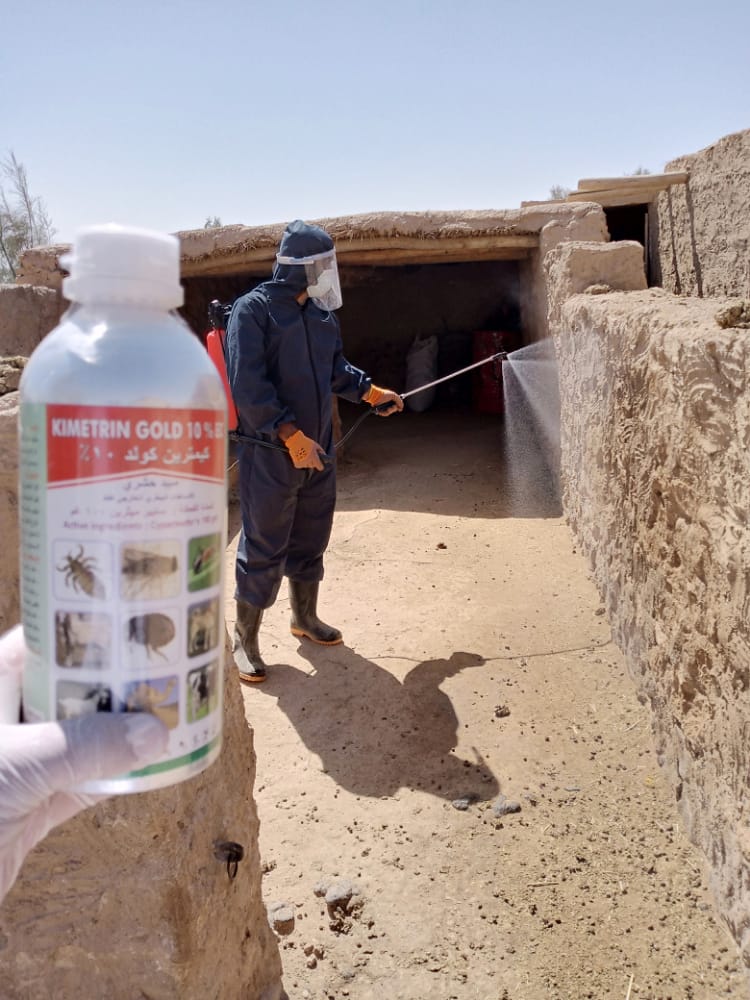
Activity 1.1.6 Provide Alpha Cybermatric to Livestock Owners
This activity began with the process of sterilizing the barns, during which each livestock breeders was visited, and the Alpha Cybermatric was given to them, as well as providing the method of use and instructions, the veterinarians answered livestock breeders’ questions, and conducting PDM.
Activity 1.1.7 Provide In-Kind Mineral Salts and Fodder to Livestock Owners
The distribution of fodder and mineral salts was done separately. Coordination was made with the community committees, and the beneficiaries were notified 48 hours before the distribution. Two distribution sites were identified for a two-day period. During the distribution, veterinarians provided instructions and advice on healthy livestock nutrition and how to maintain livestock diets to livestock breeders, and veterinarians answered livestock-related inquiries, as well as a satisfaction questionnaire and PDM.

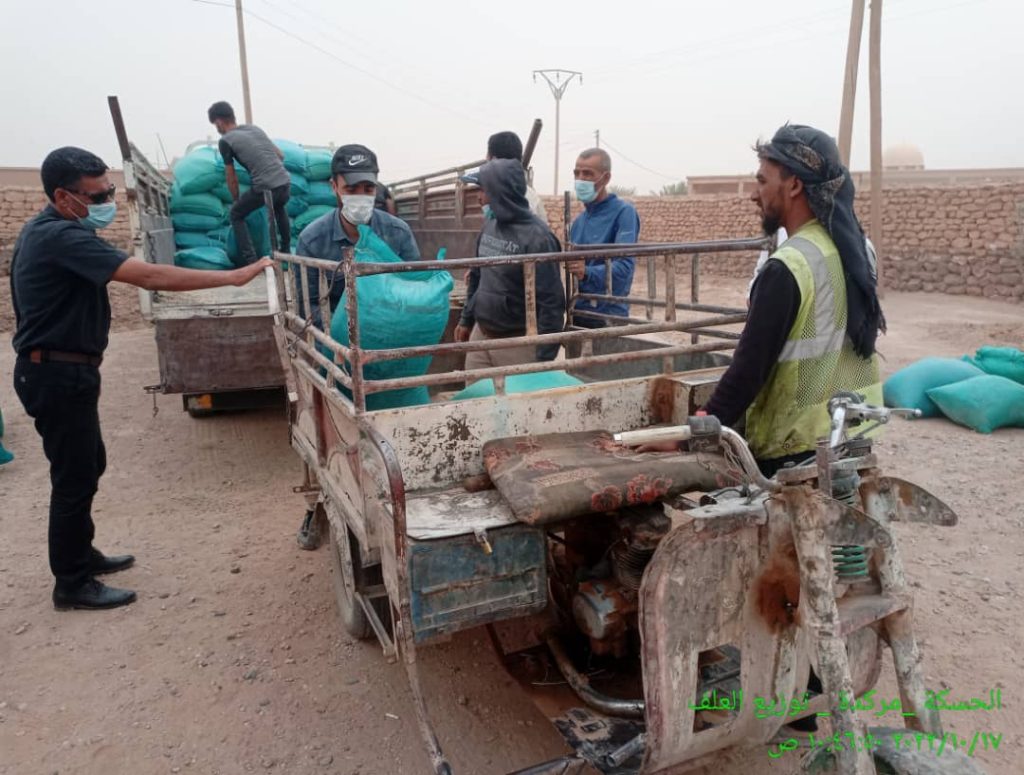

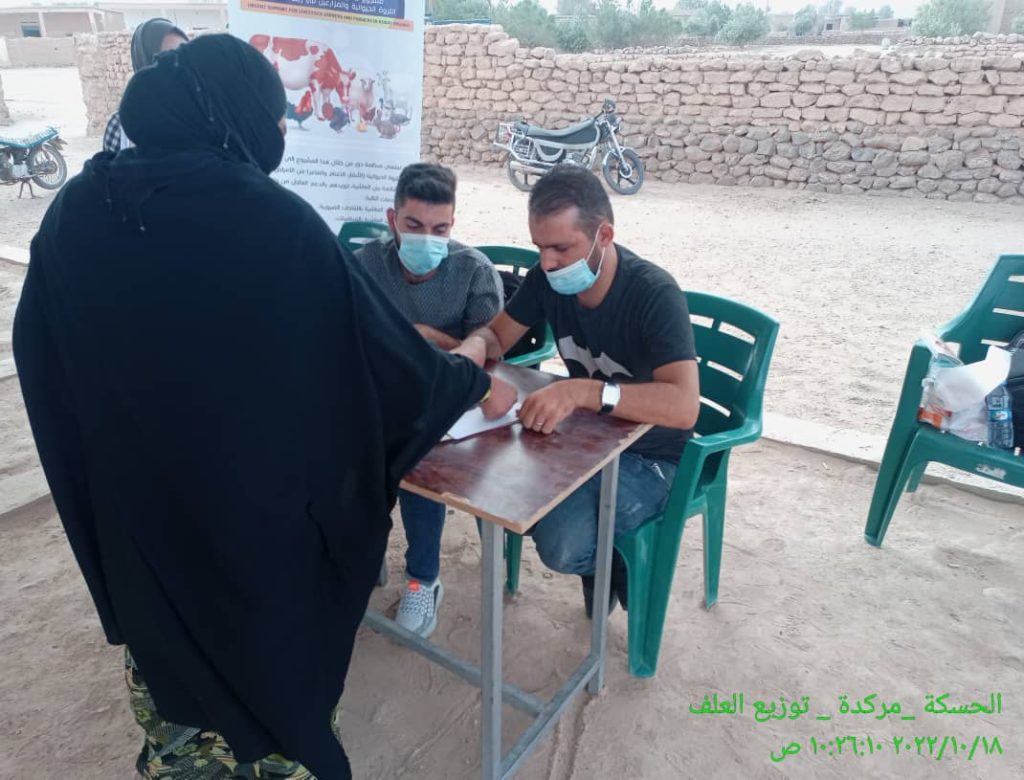
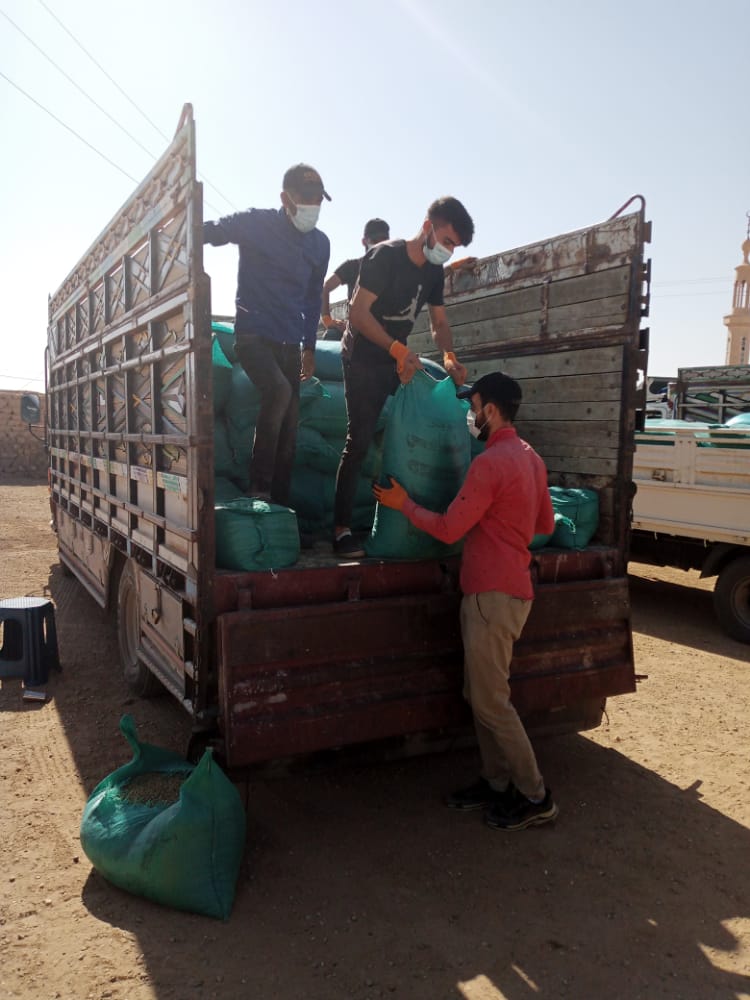

Activity 1.1.8 Provide 20 Cows with Artificial Insemination
Because the date of artificial insemination is linked to the occurrence of the cows’ menstrual cycle, coordination was made with the local committees and providing everyone with contact information for the veterinarians and with the beneficiaries so that the beneficiaries communicate with the local committees or with the veterinarians directly when the menstrual cycle occurs so that the artificial vaccine is provided by the veterinarians.
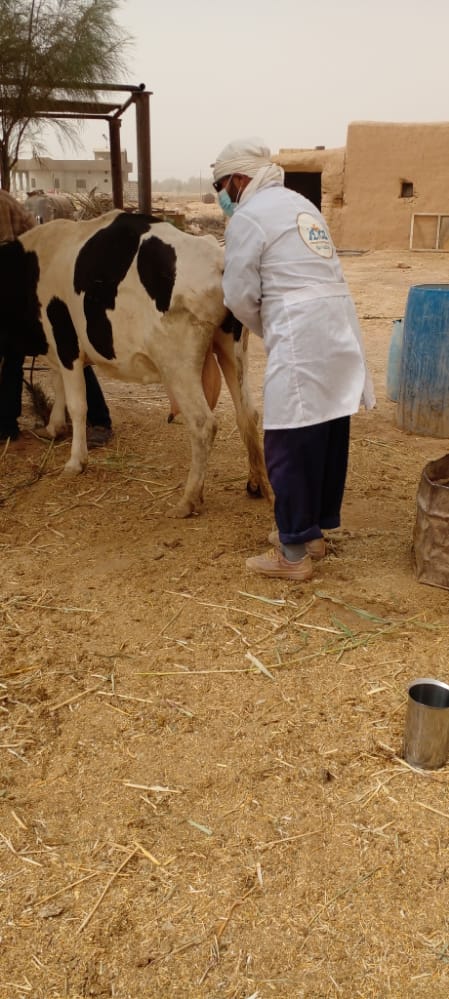
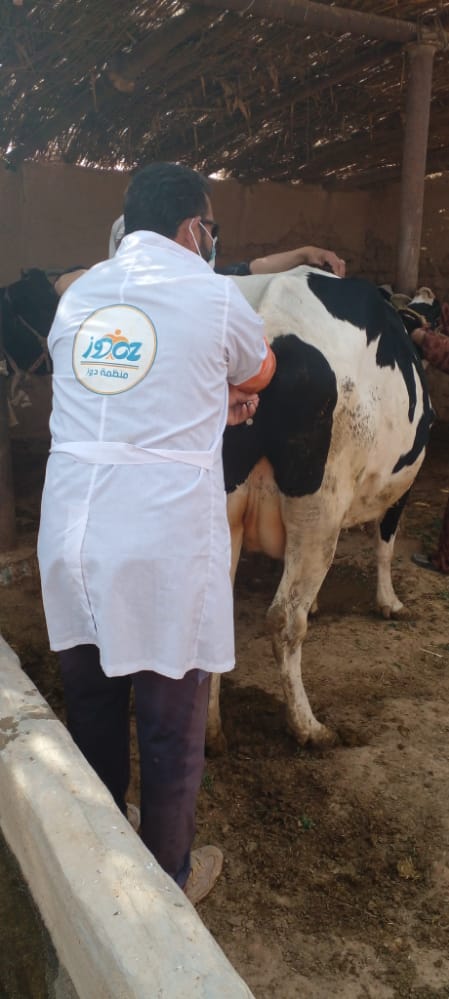
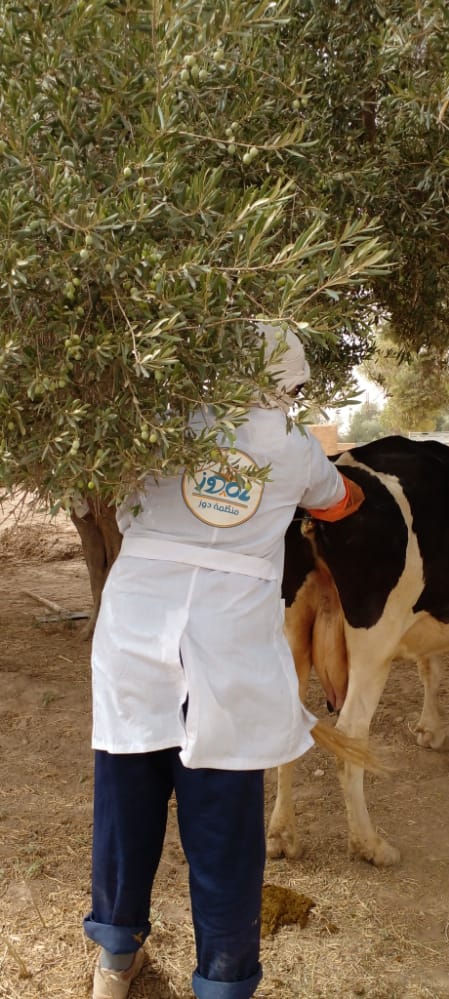
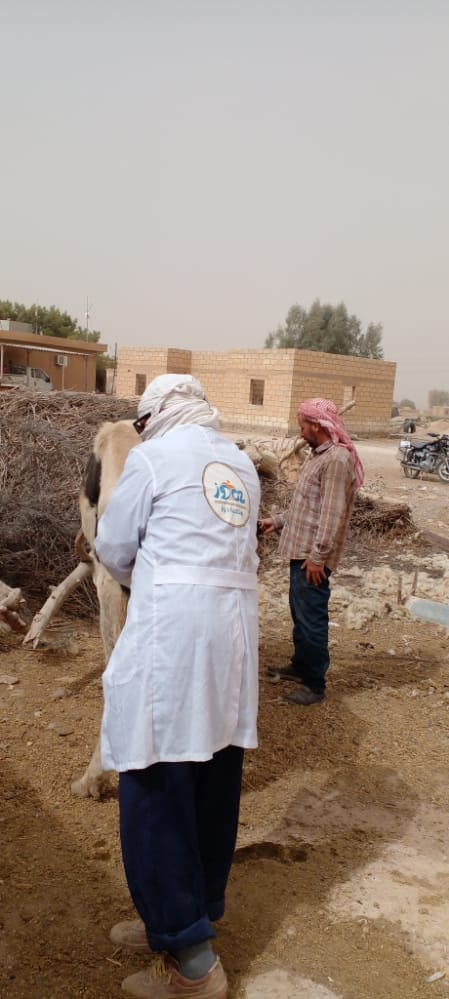
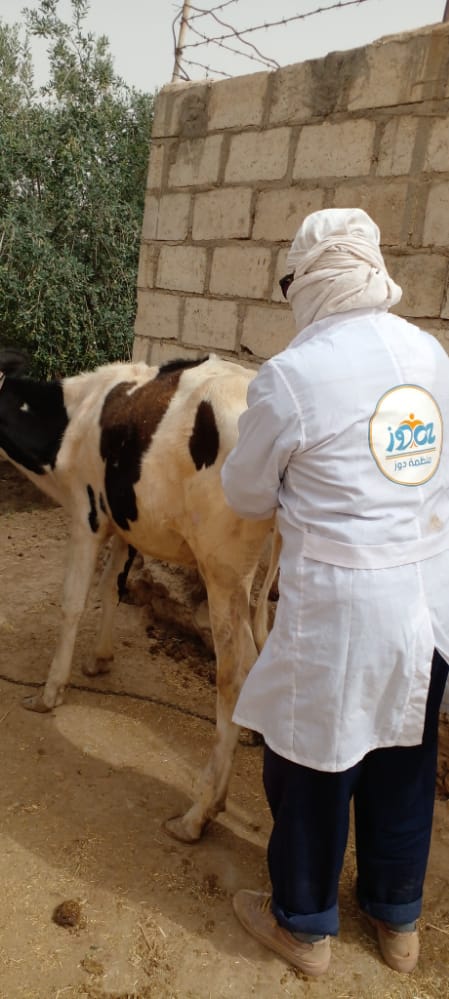
Project Closing Ceremony
The French partner Expertise France organized a closing ceremony for this project which included all partners under SABIR II Program, representatives of local authorities, local community committees, and local CSOs, and representatives from beneficiaries.
Success Stories
The livestock support and Azolla plants directly contributed to supporting livelihoods, as livestock and agriculture is the main business for locals in those villages, and the provision of in-kinds such as fodder, and mineral salts in addition to capacity buildings and vaccination of livestock helped in building trust and the feeling of being cared for by locals in the target villages which led to the consolidation of civil peace and social cohesion. Therefore, continuing to implement similar projects will contribute to increasing stability in northeastern Syria.
Based on feedback shared with us by locals, we learned that creating innovative solutions such as Azola plant as an alternative fodder in that dry area helps giving hope to local farmers and livestock owners and that local community is willing to learn new methods to raise their capacity and knowledge in the sector of livestock and agriculture.

